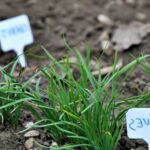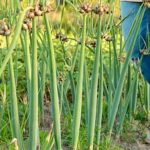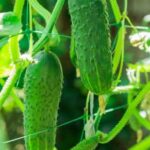Vegetable gardens with rain barrels offer a sustainable and environmentally-friendly approach to gardening. By combining the benefits of growing your own produce with water conservation, you can create a truly eco-conscious garden space. Sustainable gardening practices such as these not only benefit the environment but also promote self-sufficiency and healthier living.
Setting up your vegetable garden begins with selecting the right location and preparing the soil for optimal plant growth. Choosing vegetables that are well-suited to your climate ensures a successful harvest. Incorporating rain barrels into your garden setup provides numerous benefits, such as conserving water, reducing water bills, and creating a chemical-free irrigation source for your plants.
In addition to saving water and money, rain barrels help decrease stormwater runoff and erosion in your garden. By implementing proper installation techniques and regular maintenance tips, you can maximize water collection efficiency. Irrigating your vegetable garden with rain barrel water not only promotes plant health but also reduces reliance on tap water, highlighting the importance of sustainable practices in gardening.
Setting Up Your Vegetable Garden
When setting up your vegetable garden, one of the key considerations is selecting the right location. Choose a spot that receives ample sunlight and has good drainage to ensure your plants thrive. Additionally, proximity to your rain barrel can make watering more convenient, as you can easily access the stored water for irrigation. Positioning your garden near a rain barrel also allows for easy integration of sustainable gardening practices, as you can directly utilize harvested rainwater to nourish your plants.
Another crucial step in preparing your vegetable garden is ensuring that the soil is suitable for planting. Conduct a soil test to determine its pH levels and nutrient content, making amendments as necessary to create a fertile environment for your vegetables.
Adding organic matter such as compost or manure can improve soil structure and provide essential nutrients for plant growth. By taking the time to properly prepare your soil, you set a strong foundation for a successful vegetable garden that can benefit greatly from rain barrel irrigation.
When it comes to choosing which vegetables to grow in your garden, consider factors such as climate and seasonality. Selecting vegetables that are well-suited to your local climate increases their chances of thriving and producing a bountiful harvest. Research the optimal growing conditions for different vegetable varieties in your area and plan your garden accordingly. By aligning your crop selection with the unique characteristics of your climate, you enhance the sustainability of your garden and maximize its potential yield.
| Benefit | Data |
|---|---|
| Conserve water | Rain barrels help conserve water by collecting and storing rainfall that can then be used for watering gardens. |
| Reduce water bills | By using rain barrel water instead of tap water for irrigation, households can lower their overall water consumption and reduce utility costs. |
| Chemical-free water | Rainwater collected in barrels is free from chemicals often found in tap water, providing a natural and safe option for watering plants. |
Benefits of Using Rain Barrels
Rain barrels are an essential addition to any vegetable garden, providing a multitude of benefits that contribute to the overall health and sustainability of your plants. One of the primary advantages of using rain barrels is the conservation of water.
By collecting rainwater, you can reduce your reliance on municipal water sources, resulting in lower water bills and less strain on local water supplies. In regions where droughts are common, having a rain barrel can be a lifesaver for maintaining your vegetable garden during dry spells.
In addition to saving money on water bills, utilizing rain barrels also ensures that your plants receive chemical-free water. Municipal water often contains chlorine and other additives that may not be ideal for plant growth. Rainwater, on the other hand, is pure and free from harmful chemicals, providing a healthier option for watering your vegetables. This natural water source can lead to improved plant health and increased yields in your garden.
Another significant benefit of using rain barrels is the positive impact it has on the environment. Collecting rainwater helps reduce stormwater runoff, which can lead to erosion and contamination of natural waterways with pollutants from paved surfaces. By capturing rainwater in barrels for use in your vegetable garden, you are actively contributing to environmental conservation efforts by minimizing runoff and supporting sustainable gardening practices.
| Benefit | Description |
|---|---|
| Conserving Water | Reduce reliance on municipal sources and lower water bills |
| Chemical-Free Water | Provide plants with pure water free from harmful additives |
| Environmental Impact | Decrease stormwater runoff and support sustainability efforts |
Installation and Maintenance of Rain Barrels
Installing a rain barrel in your garden is a fantastic way to conserve water and provide chemical-free water for your plants. When selecting a rain barrel, it’s important to choose one that suits the needs of your vegetable garden. Consider factors such as capacity, material durability, and design features like a secure lid and spigot for easy access to the collected water.
Proper installation of your rain barrel is crucial for maximizing water collection and efficiency. Position the rain barrel under a downspout near your vegetable garden to easily capture water runoff from your roof. Ensure the barrel is on a stable base to prevent tipping over once filled with water. It’s also essential to regularly inspect and maintain the rain barrel, checking for leaks, cleaning out debris, and ensuring that the overflow outlet is clear to prevent any backups.
Regular maintenance of your rain barrel will ensure that it continues to provide clean water for your vegetable garden. Keep an eye out for any signs of wear or damage, such as cracks or mold growth, and address these issues promptly. By investing time in proper installation and upkeep of your rain barrel, you can enjoy the benefits of sustainable gardening practices while reducing water consumption and promoting a healthy ecosystem in your garden.
Choosing the Right Rain Barrel
When selecting a rain barrel for your vegetable garden, consider factors such as size, material, and features like an overflow valve or hose attachment for easy watering. Look for barrels made from UV-resistant materials like food-grade plastic or recycled materials to ensure durability in outdoor conditions. Additionally, opt for a barrel with a secure lid to prevent debris or insects from contaminating the collected water.
Maximizing Water Collection
To maximize water collection in your rain barrel, position it under a downspout with proper drainage away from the foundation of your home. Consider adding additional barrels or connecting multiple barrels using a diverter system to increase storage capacity.
Regularly clean out leaves and debris from gutters and screens to prevent clogging and ensure optimal water flow into the barrels. With proper installation and maintenance techniques in place, you can efficiently harvest rainwater to irrigate your vegetable garden while minimizing waste and promoting environmentally-friendly practices.
Irrigating Your Vegetable Garden With Rain Barrel Water
Benefits of Using Rain Barrel Water for Irrigation
Using rain barrel water to irrigate your vegetable garden offers numerous benefits. Firstly, it helps in conserving water and reducing your water bills, especially during dry seasons.
By collecting rainwater and using it to water your plants, you are decreasing your reliance on municipal water sources, which is not only cost-effective but also environmentally friendly. Additionally, rainwater is free of the chemicals often found in tap water, making it a healthier option for your plants as well as the soil in which they grow.
Proper Watering Techniques With Rain Barrel Water
When irrigating your vegetable garden with rain barrel water, it’s essential to follow proper watering techniques to ensure the health and vitality of your plants. One technique is to water deeply but infrequently, allowing the roots of the plants to establish themselves more effectively. Another important tip is to water in the morning or evening when evaporation rates are lower, ensuring that the plants receive adequate moisture without losing too much to evaporation.
Tips for Maximizing Rainwater Usage in Your Garden
To make the most out of the rainwater collected in your barrels for irrigation purposes, consider implementing certain strategies. One effective tip is to place your rain barrels strategically around your garden to minimize runoff and maximize collection efficiency.
Furthermore, investing in a drip irrigation system can help distribute the collected rainwater more efficiently and precisely to each plant’s root zone. By implementing these tips and techniques, you can ensure that your vegetable garden thrives while utilizing sustainable practices with rain barrel water.
Composting and Recycling in Your Garden
Composting and recycling play a crucial role in creating a sustainable ecosystem within your vegetable garden. By incorporating these practices into your gardening routine, you not only reduce waste but also provide essential nutrients to your plants, promoting healthier growth and increasing their resilience to pests and diseases.
To successfully implement composting in your garden, consider investing in a compost bin or creating a designated composting area. This will allow you to recycle kitchen scraps, yard waste, and other organic material to create nutrient-rich compost for your vegetable plants. Utilize the following steps to maximize the benefits of composting:
- Layer kitchen scraps with yard waste such as leaves and grass clippings to maintain a balanced carbon-nitrogen ratio for optimal decomposition.
- Turn the compost pile regularly to aerate it and accelerate the decomposing process.
- Avoid adding meat, dairy, or oily food products to prevent attracting pests and producing unpleasant odors.
In addition to composting, maximizing organic material recycling within your garden can be achieved by practicing mulching. Mulch not only conserves moisture in the soil but also suppresses weeds and adds nutrients as it decomposes. Consider using organic materials such as straw, wood chips, or shredded leaves as mulch around your vegetable plants for added benefits.
By incorporating composting and recycling practices into your vegetable garden, you can create a sustainable ecosystem that supports plant growth while minimizing waste production. Embracing these techniques not only benefits your garden but also contributes positively to the environment. Start implementing these practices today to create a more sustainable and environmentally friendly vegetable garden with rain barrel water utilization at its core.
Troubleshooting Common Issues
Dealing with pests and diseases in your vegetable garden is a common challenge that many gardeners face. One way to address these issues is by implementing integrated pest management techniques, such as attracting beneficial insects like ladybugs or using natural remedies like neem oil to combat pests.
Additionally, practicing crop rotation and proper spacing can help prevent the spread of diseases among your vegetables. Regularly inspecting your plants for any signs of distress and addressing them promptly can help maintain a healthy garden.
Preventing mold and mildew growth in rain barrels is essential to ensure the water collected remains safe for your plants. To minimize the chances of mold and mildew, be sure to keep the rain barrel clean by regularly scrubbing it with a mixture of vinegar and water.
It’s also important to cover the rain barrel with a screen or lid to prevent debris and contaminants from getting into the water. Proper ventilation around the rain barrel can also help prevent the build-up of moisture that promotes mold growth.
Solutions for maintaining a healthy garden and rainwater collection system go hand in hand with sustainable gardening practices. By incorporating organic pest control methods, like introducing natural predators or using companion planting techniques, you can reduce the need for harmful chemicals that can impact both your plants and the environment.
Monitoring the health of your plants regularly, staying vigilant against potential issues, and taking proactive steps to address them will contribute to a thriving vegetable garden supported by rain barrel irrigation.
Conclusion
In conclusion, the combination of vegetable gardens with rain barrels offers a multitude of benefits for both your garden and the environment. By utilizing sustainable gardening practices such as harvesting rainwater, you not only conserve water and reduce your water bills but also provide chemical-free water for your plants to thrive. Additionally, using rain barrels helps decrease stormwater runoff and erosion, contributing to a healthier ecosystem in your garden.
As we have discussed the importance of setting up a vegetable garden and rain barrel system, it is evident that these practices go hand in hand in promoting sustainability. From selecting the right location for your garden to properly maintaining your rain barrel, every step plays a crucial role in ensuring the success of your gardening endeavors. Embracing these practices not only benefits you as a gardener but also positively impacts the environment around you.
Therefore, I encourage all readers to take the initiative to start their own vegetable gardens with rain barrels. By implementing these eco-friendly methods, you are not only creating a self-sustaining ecosystem in your backyard but also contributing to environmental conservation on a larger scale. Let’s come together to make our world greener, one vegetable garden with a rain barrel at a time.

If you’re looking to get into vegetable gardening, or are just looking for some tips on how to make your current garden better, then you’ve come to the right place! My name is Ethel and I have been gardening for years. In this blog, I’m going to share with you some of my best tips on how to create a successful vegetable garden.





